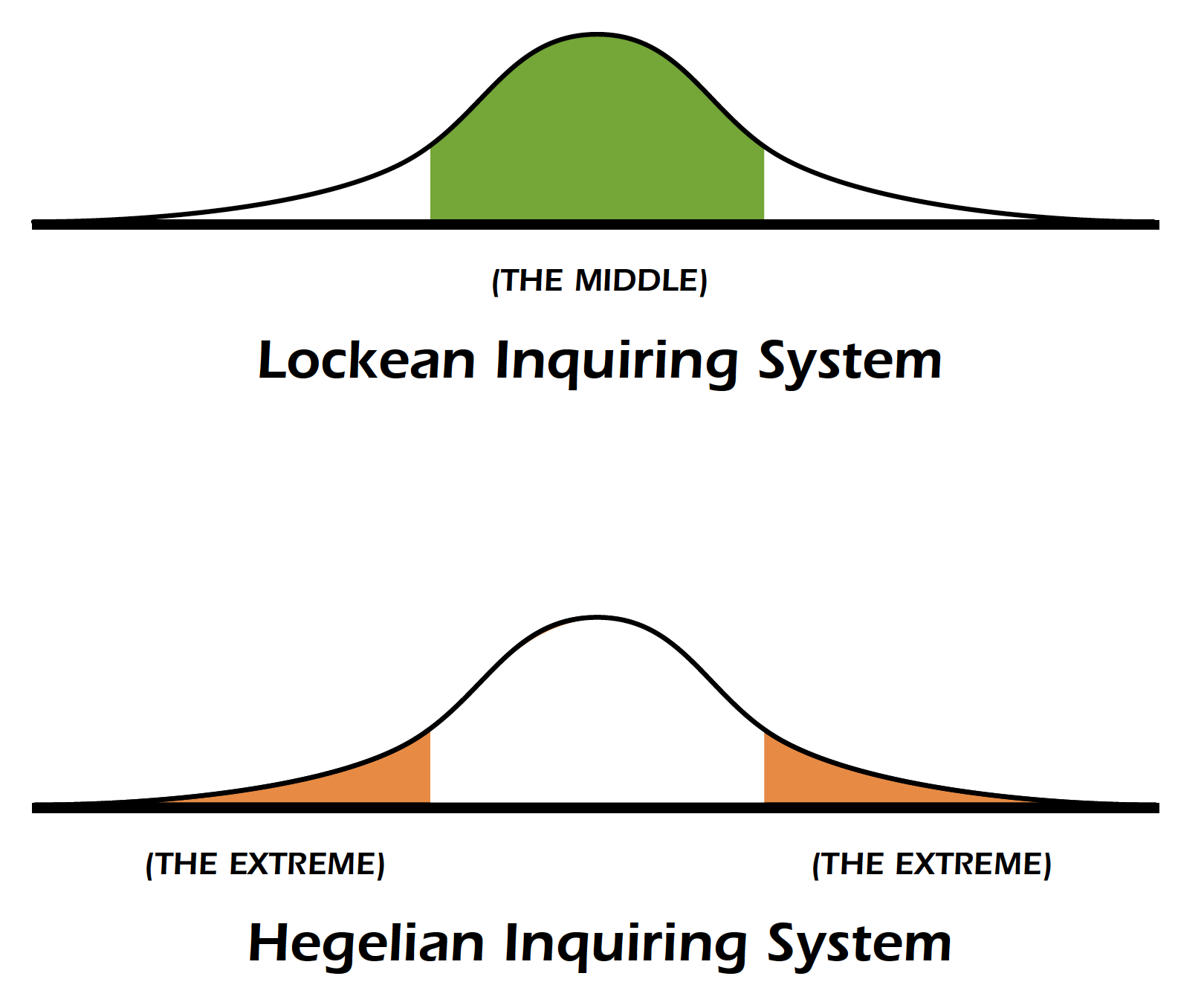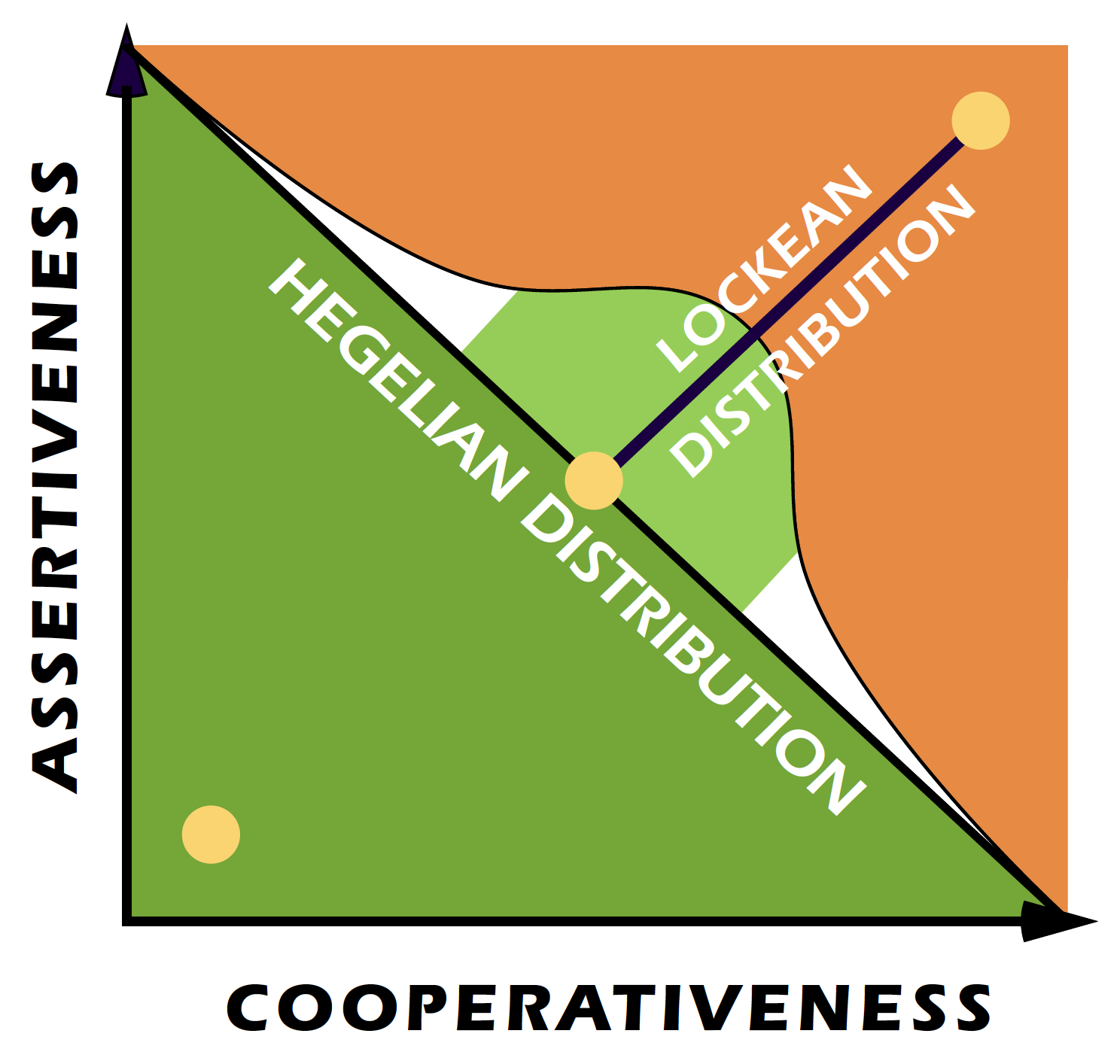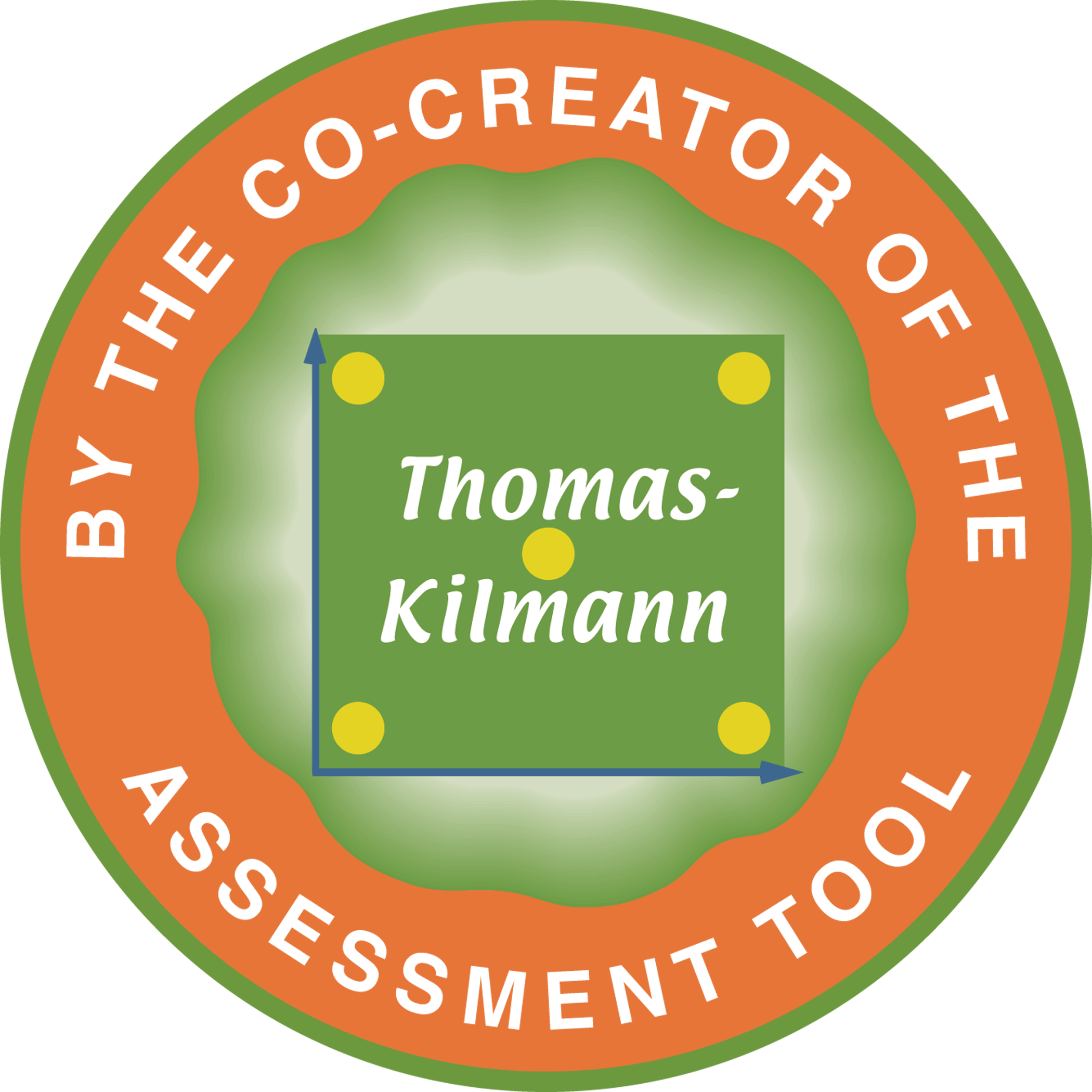07 Jan Philosophy and Conflict Management
Ralph H. Kilmann, co-author of the Thomas-Kilmann Instrument (TKI)
When people see the above title on one of my live presentations, they usually ask: “What does philosophy have to do with conflict management?” I respond: “Everything!”

To cut to the chase, there are two philosophical inquiring systems that are particularly relevant to conflict management: (1) the Lockean Inquiring System, named after John Locke, and (2) the Hegelian Inquiring System, named after Georg Wilhelm Friedrich Hegel. These two systems represent very different ways of discovering the truth, the rightness, the correctness, the resolution, etc. of any argument, position, or conflict. So if someone says, “This is the best way to resolve this conflict,” HOW DO WE KNOW THAT?
The Lockean system asserts that the best answer to any question is based on what the majority says is so. Indeed, if you find that a majority agrees on something, according to the Lockeans, they must be right! Public opinion polls, for example, that document what most people believe become, de facto, the basis for defining what is right and best for all. The voting process in a democracy similarly assumes that the majority is right and the minority is wrong (at least for the time being…until the next election).
The Hegelian system, in sharp contrast, asserts that the truth, rightness, or correctness of an answer is only possible to determine if two opposing views are FIRST thoroughly debated for the purpose of uncovering their underlying assumptions. And then, as a result of understanding the topic with much greater depth and clarity (through such a probing debate), it’s then possible to come up with an entirely new position that INCLUDES AND TRANSCENDS all the previous arguments (moving from thesis and anti-thesis to a REAL synthesis).
In the extreme, Hegelians get stuck on arguing strongly for their own position, which is high assertiveness and low cooperativeness (competing). They expect the other person to eventually give in to their position, which is high cooperativeness and low assertiveness (accommodating). But for the most part, there remains a tug of war on the distributive dimension as each Hegelian attempts to influence the other toward his own point of view. The outcome is either one or the other…sometimes, perhaps, there is a little adjustment (in incorporating the other person’s point of view), which leads to a compromise solution. Yet that compromise, since it is only moderate on both assertiveness and cooperativeness, leaves each person partially satisfied and partially dissatisfied.In the extreme, Lockeans quickly come to an agreement without having spent any time on understanding each position. They essentially “vote” and the majority wins the day.

But here is the all important integration: Eventually, Hegelians must come to an agreement before they can move onto action (or they get stuck on analysis, paralysis). Meanwhile, the Lockeans must recognize their differences before they reject the minority positions.Most important: When an intense debate on the ASSUMPTIONS behind each position on the distributed dimension PRECEDES the effort to reach agreement that leads to action, that agreement is indeed based on more in-depth knowledge and everyone’s experience. The richer understanding has the best chance of expanding the size of the pie and thus allowing movement up the integrative dimension to a Lockean solution that transcends and includes all that was initially debated by the Hegelians.

Perhaps the most valuable contribution of philosophy to conflict management is to recognize that the two inquiring systems lead to vastly different results. To help people, organizations, and nations resolve their most important conflicts, these contrasting systems further highlight the importance of shifting from the distributive to the integrative dimension (from bipartisan to transpartisan politics), so EVERYONE can achieve more satisfaction and meaning from life.
Kilmann Diagnostics offers a series of eleven recorded online courses and nine assessment tools on the four timeless topics: conflict management, change management, consciousness, and transformation. By taking these courses and passing the Final Exams, you can earn your Certification in Conflict and Change Management with the Thomas-Kilmann Instrument (TKI). For the most up-to-date and comprehensive discussion of Dr. Kilmann’s theories and methods, see his 2021 Legacy Book: Creating a Quantum Organization: The Whys & Hows of Implementing Eight Tracks for Long-term success.




